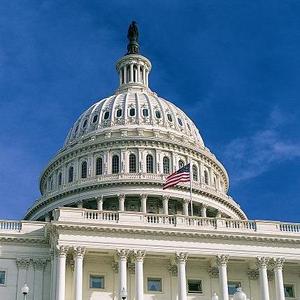Calif. biodiesel group urges House leaders to act on tax credit

March 6, 2019
BY Ron Kotrba
California biodiesel producers, blenders and industry stakeholders sent House Speaker Nancy Pelosi and Minority Leader Kevin McCarthy a letter March 6 urging the U.S. House of Representatives to renew the biodiesel tax credit “at the earliest opportunity.” Both Pelosi and McCarthy represent California districts.
On Feb. 28, Sens. Chuck Grassley, D-Iowa, and Ron Wyden, D-Oregon, introduced the Tax Extender and Disaster Relief Act of 2019, which among other important items would retroactively reinstate the $1 per gallon biodiesel tax credit from Jan. 1, 2018, through Dec. 31, 2019.
Advertisement
Advertisement
“California workers and companies are depending on you to provide the certainty we need to secure investments and continue growing to meet our state’s fuel needs over the next several years,” the letter from the California Advanced Biofuels Alliance states. “Extending the federal tax incentive will help California meet its clean energy and environmental goals.”
The letter notes that during the first three quarters of 2018, the California market consumed more than 400 million gallons of biodiesel and renewable diesel, and the state anticipates using at least 1 billion gallons annually by 2025 under the Low Carbon Fuel Standard.
“Renewal of the federal tax incentive can help ensure that California has access to increasing volumes of biodiesel and renewable diesel, which will be necessary to reach carbon reduction goals,” the letter states. “This is the longest period of policy uncertainty since the tax incentive was first established. The uncertainty created by the lapse of the biodiesel tax credit is slowing investments in new plants and raising the costs of projects to maintain, improve or expand existing plants. We ask that you make it a priority to extend the tax incentive at the earliest opportunity.”
Advertisement
Advertisement
According to Larry Schafer, a biodiesel lobbyist with Playmaker Strategies, the House Committee on Ways and Means will hold a hearing March 12 related to temporary tax provisions. “We will likely be preparing and submitting testimony on behalf of our clients,” Schafer said.
“Biodiesel is an American success story,” concludes the CABA letter. “It diversifies our nation’s fuel sources and increases our energy independence. Biodiesel and renewable diesel have environmental benefits beyond carbon reduction, including lowering both toxic air pollutants and wastes from our waterways. A multiyear extension of the tax incentive will ensure that Californians continue to enjoy those benefits.”
Related Stories
The USDA has announced it will delay opening the first quarterly grant application window for FY 2026 REAP funding. The agency cited both an application backlog and the need to disincentivize solar projects as reasons for the delay.
CoBank’s latest quarterly research report, released July 10, highlights current uncertainty around the implementation of three biofuel policies, RFS RVOs, small refinery exemptions (SREs) and the 45Z clean fuels production tax credit.
The U.S. EPA on July 8 hosted virtual public hearing to gather input on the agency’s recently released proposed rule to set 2026 and 2027 RFS RVOs. Members of the biofuel industry were among those to offer testimony during the event.
The USDA’s Risk Management Agency is implementing multiple changes to the Camelina pilot insurance program for the 2026 and succeeding crop years. The changes will expand coverage options and provide greater flexibility for producers.
President Trump on July 4 signed the “One Big Beautiful Bill Act.” The legislation extends and updates the 45Z credit and revives a tax credit benefiting small biodiesel producers but repeals several other bioenergy-related tax incentives.
Upcoming Events










